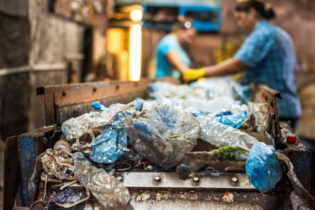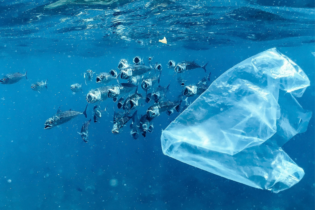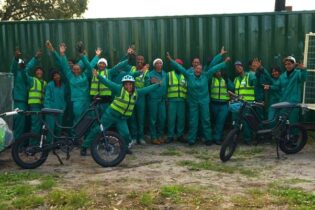As the global movement away from single-use plastics gathers momentum, South Africa continues to make significant strides in its polyethylene terephthalate (PET) plastic recycling efforts.
According to the latest statistics released by national industry body PET Recycling Company (PETCO), 98 649 tonnes of post-consumer PET plastic bottles were recycled last year alone, saving 612 000 cubic metres of landfill space and lessening the country’s carbon emissions footprint by 148 000 tonnes. This represents a 6% increase on the 2017 figures of 93 235 tonnes of PET bottles recycled. PETCO chief executive officer Cheri Scholtz said an average of 6.2 million PET plastic bottles were collected for recycling across South Africa every day last year, creating 68,000 income-generating opportunities for small and micro-collectors – up from the 64,000 total for 2017. In addition, an estimated R1.2 billion was injected into the downstream economy, through the manufacturing, distribution and sale of products made from recycled PET. Describing the results as “encouraging”, Scholtz said it meant that PETCO was on track to meet its target of seeing 70% of post-consumer PET bottles recycled by 2022. Scholtz added that 2018 had seen unprecedented pressure and attention on plastics in the public space.“Now, more than ever, companies failing to address environmental performance in product design and development will find it increasingly difficult to compete in the global market.
“Globally, product stewardship or Extended Producer Responsibility [EPR] has become the requirement for all producers. In South Africa, the Waste Act now makes this a legal requirement,” said Scholtz. “Clearly, it cannot be right to allow plastics to leak into the environment, but neither is it acceptable to lose the opportunity to utilise plastic as a fit-for-purpose and cost-effective material for so many applications.” She said PETCO had responded to the call by the Department of Environmental Affairs and submitted an industry waste management plan last year, which she described as a “massive collaborative effort” by all stakeholders in the PET value chain. “Creating the right balance of legislative drivers and positive long-term business conditions will allow a viable and resilient system to be established which demonstrates the value of plastics as a circular material and prevents plastic in the natural environment. EPR is seen by many as one of the key drivers to achieving these aims,” said Scholtz.





